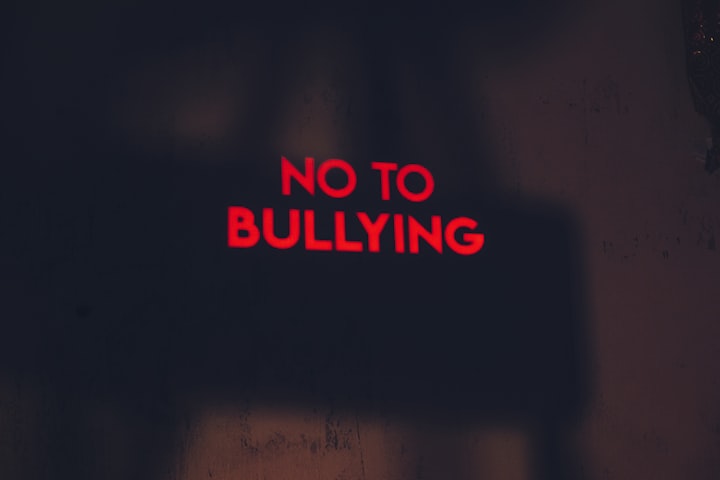Understanding Bullying
Confronting the Challenge Together

Bullying is a pervasive and distressing issue that affects individuals of all ages, backgrounds, and communities. It involves repeated aggressive behavior, intentional harm, and power imbalance. Whether it occurs in schools, workplaces, or online platforms, bullying can have severe consequences on the well-being and mental health of those involved. In this article, we will delve into the complexities of bullying, its various forms, impacts, and explore strategies for prevention and intervention.
Forms of Bullying:
Bullying can manifest in different ways, with varying degrees of severity. The most common forms include:
Physical Bullying: This involves physical acts of aggression, such as hitting, kicking, pushing, or damaging personal property.
Verbal Bullying: Verbal abuse, name-calling, taunting, spreading rumors, and using derogatory language fall into this category.
Relational Bullying: Also known as social bullying, this form focuses on damaging relationships and social status through exclusion, manipulation, or spreading gossip.
Cyberbullying: With the advent of technology, bullying has extended to online platforms. Cyberbullying includes sending threatening messages, spreading rumors, sharing embarrassing photos or videos, and harassing individuals through social media or messaging apps.
Impacts of Bullying:
Bullying can have profound and long-lasting effects on the mental, emotional, and physical well-being of those involved. Victims of bullying often experience increased levels of anxiety, depression, low self-esteem, and social isolation. They may also face difficulties in academic or professional settings, leading to decreased performance, absenteeism, and even dropping out of school or work.
Bullies themselves can also suffer adverse consequences. Engaging in aggressive behavior may be an indication of underlying issues such as low self-esteem, insecurity, or a history of being bullied. If left unaddressed, these individuals may struggle with forming healthy relationships and face challenges in their personal and professional lives.
Prevention and Intervention:
Addressing bullying requires a collective effort from individuals, communities, and institutions. Here are some strategies for prevention and intervention:
Education and Awareness: Promoting understanding and empathy through educational programs is crucial. Schools, workplaces, and communities should provide resources and training to raise awareness about bullying, its impacts, and the importance of respectful behavior.
Encouraging Open Communication: Establishing an environment where individuals feel comfortable reporting incidents of bullying is essential. Encourage victims, bystanders, and witnesses to speak up and provide them with safe channels to report incidents confidentially.
Implementing Anti-Bullying Policies: Schools and workplaces should have clear and comprehensive policies that explicitly condemn bullying. These policies should outline consequences for perpetrators, provide support systems for victims, and establish procedures for reporting and investigating incidents.
Building Empathy and Inclusion: Foster a culture of empathy, understanding, and respect. Promote inclusivity and celebrate diversity, ensuring that everyone feels valued and included within the community.
Support Systems and Interventions: Establish support systems such as counseling services, helplines, or peer support groups to assist both victims and bullies. Implement appropriate interventions, such as mediation, conflict resolution, or disciplinary measures, based on the severity and circumstances of each case.
Conclusion:
Bullying is a deeply concerning issue that affects individuals and communities worldwide. By understanding its various forms, recognizing its impacts, and implementing proactive strategies, we can create environments that reject bullying and promote empathy, respect, and inclusivity. It is our collective responsibility to foster safe spaces, educate individuals, and provide support to address this pervasive problem. Together, we can confront bullying and work towards building a more compassionate and harmonious society for all.
About the Creator
Syed Usman Ahmed
🖋️ Unleashing the Power of Words | Usman: The Maestro of Article Writing ✍️






Comments
There are no comments for this story
Be the first to respond and start the conversation.